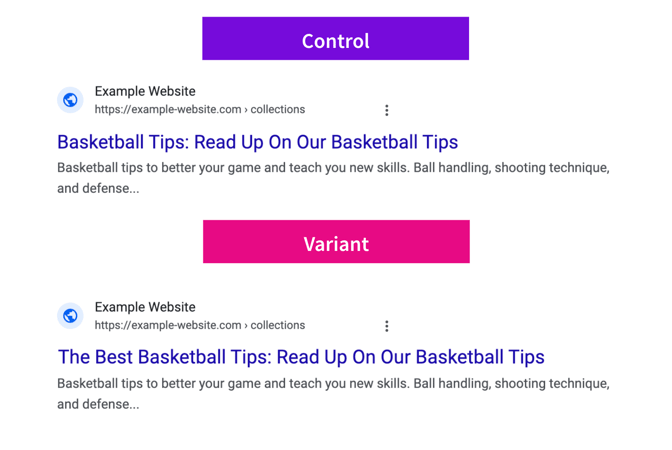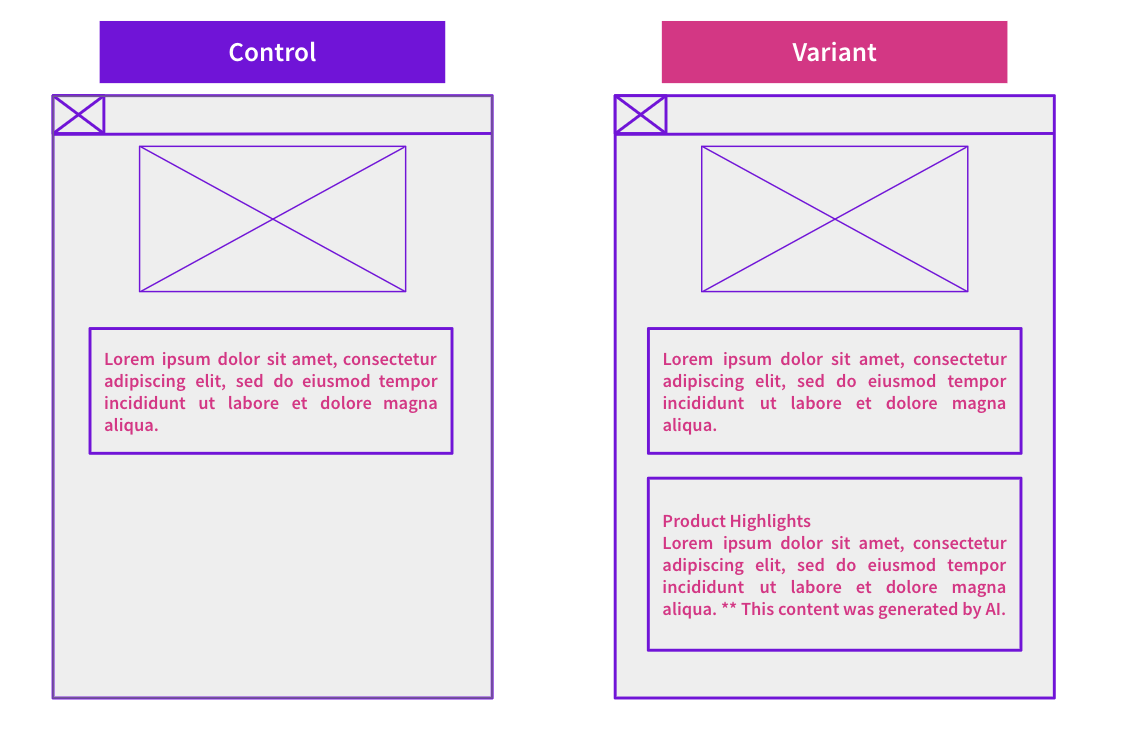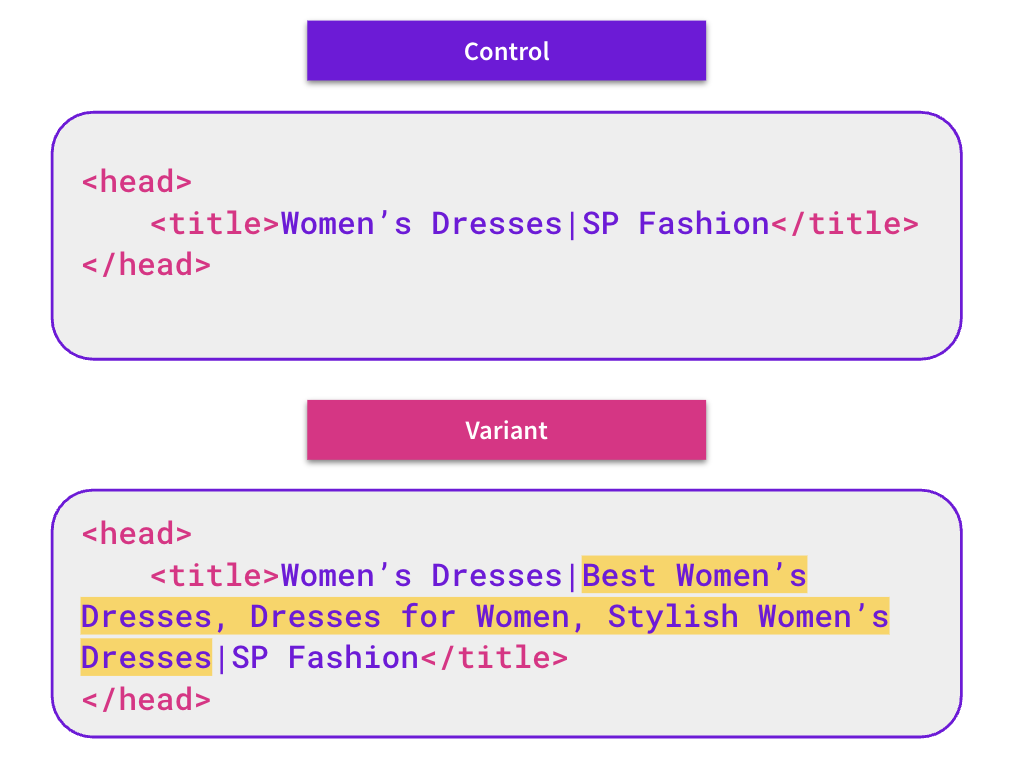Start here: how our SEO split tests work
If you aren't familiar with the fundamentals of how we run controlled SEO experiments that form the basis of all our case studies, then you might find it useful to start by reading the explanation at the end of this article before digesting the details of the case study below. If you'd like to get a new case study by email every two weeks, just enter your email address here.
In this week’s #SPQuiz, we asked if incorporating the keyword phrase ‘The Best’ in your title tags would help improve organic traffic.
We asked our followers on both Twitter and LinkedIn what they thought the impact would be on organic traffic.
Twitter:
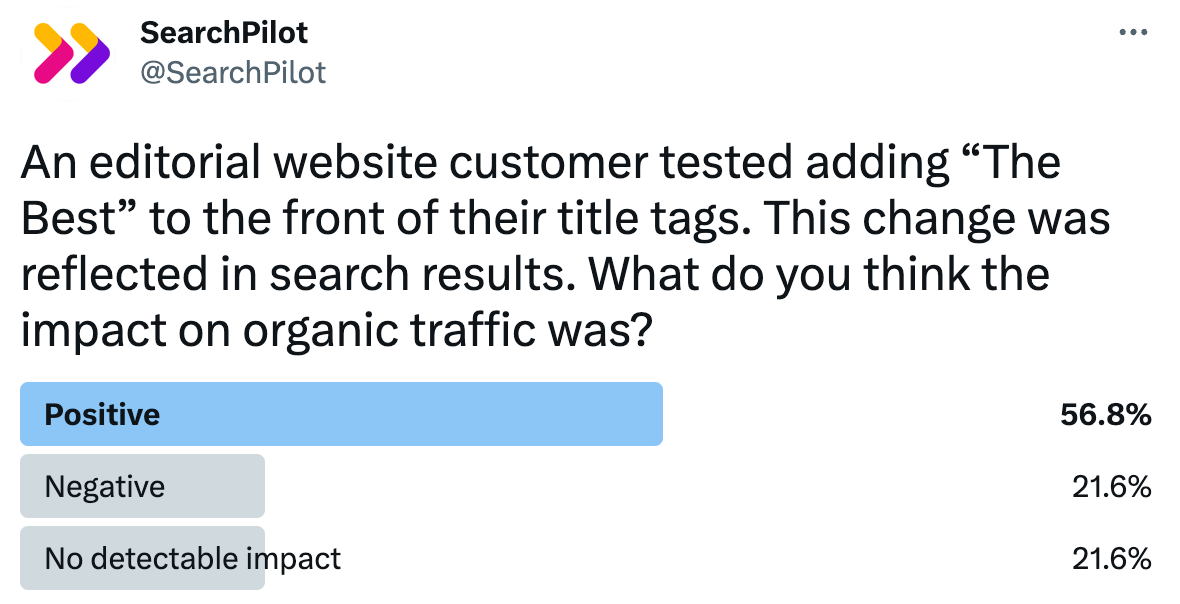
LinkedIn:
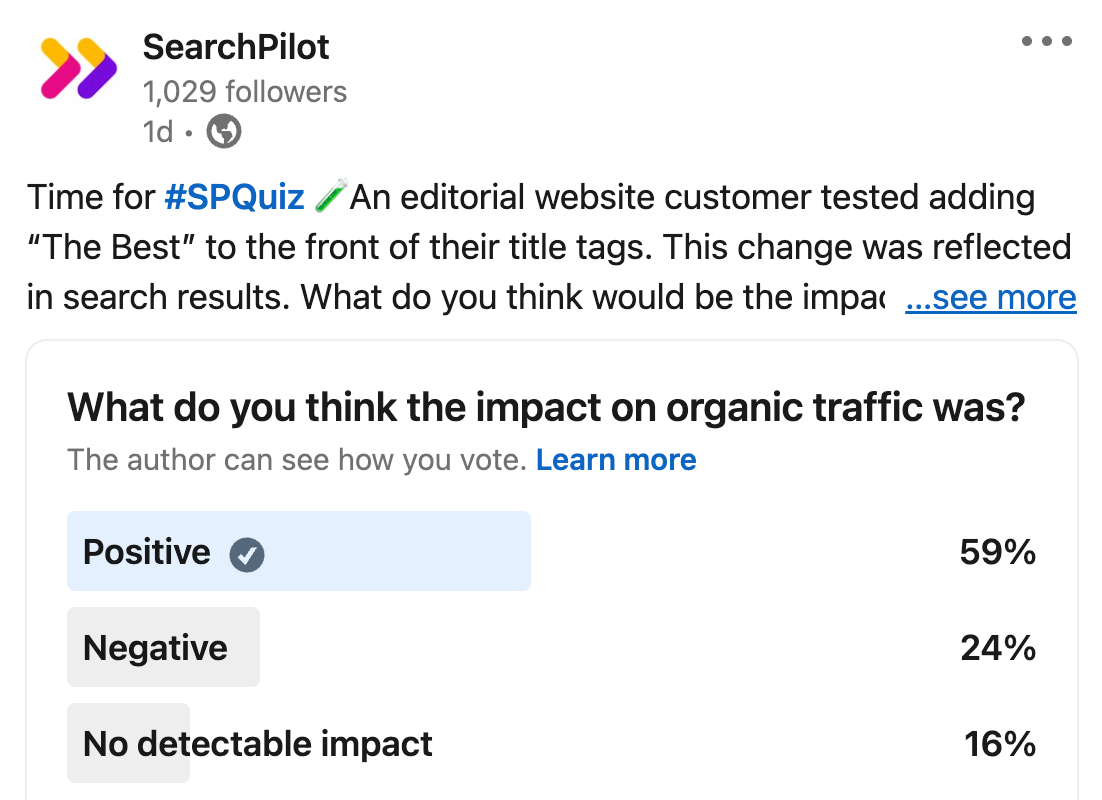
Both Twitter and LinkedIn followers believed this change would result in positive test result.
For this particular set of pages that we tested on, the final result was positive! Read on to find out the details.
The Case Study
When testing title tag variations, we’re influencing two levers that can affect your performance in search. First, the new title tag being tested may impact the overall click-through rate of the search result listing. Adding a promotional sale or offer into your title tags tends to have a positive impact on your click through rate. Of course, if Google decides to overwrite whatever your title tag is in search results, you may still see an impact on CTR but it’ll be different from what you were aiming to test.
Second, the experimental title tag pages may have new keywords which could result in Google serving your listings in different ranking positions for a different set of search queries. It’s difficult to know exactly how they change but we can know the net outcome of the change by measuring organic traffic.
The hypothesis for this test was that adding ‘The Best’ to the beginning of title tags, the variant group would produce better click through rate and see a positive impact on organic traffic. The customer is an editorial site and the control and variant title tags looked like this:
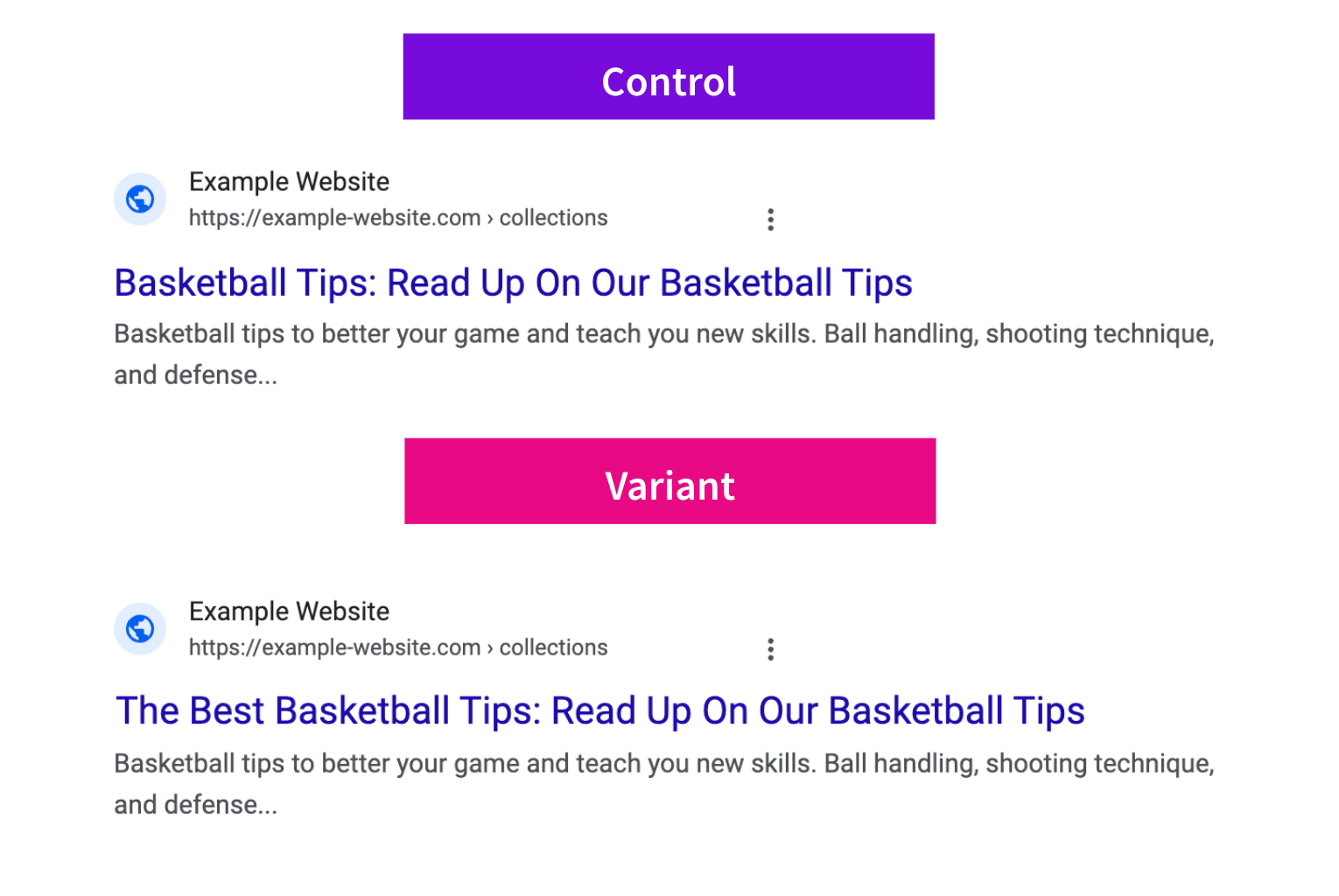
Here’s a screenshot of the test results:
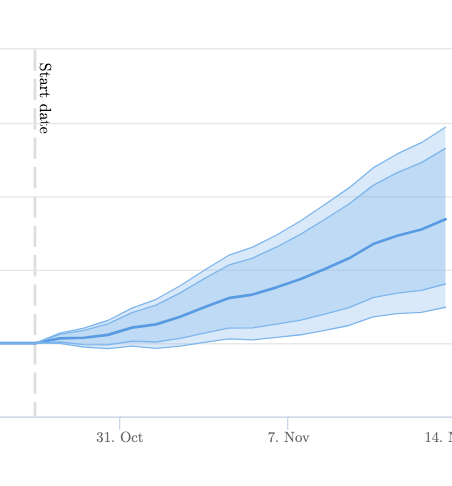
Final outcome, this new title tag resulted in a 10% uplift in organic traffic. The estimated impact of deploying this across the site section would be an extra 11,000 organic sessions per month. This test was performed after Google began re-writing most of the title tags in search results but we still found that Google respected the change and showed the variant title tags in results.
We’re not sure whether it was an increased click-through rate or a result of listings being shuffled for different search queries, but this statistically significant result proves the net outcome is worth deploying to the site and supports our hypothesis that we improved one of the two levers – if not both.
To receive more insights from our testing, sign up for our case study mailing list, and please feel free to get in touch if you want to learn more about this test or our split-testing platform.
How our SEO split tests work
The most important thing to know is that our case studies are based on controlled experiments with control and variant pages:
- By detecting changes in performance of the variant pages compared to the control, we know that the measured effect was not caused by seasonality, sitewide changes, Google algorithm updates, competitor changes, or any other external impact.
- The statistical analysis compares the actual outcome to a forecast, and comes with a confidence interval so we know how certain we are the effect is real.
- We measure the impact on organic traffic in order to capture changes to rankings and/or changes to clickthrough rate (more here).
Read more about how SEO testing works or get a demo of the SearchPilot platform.
